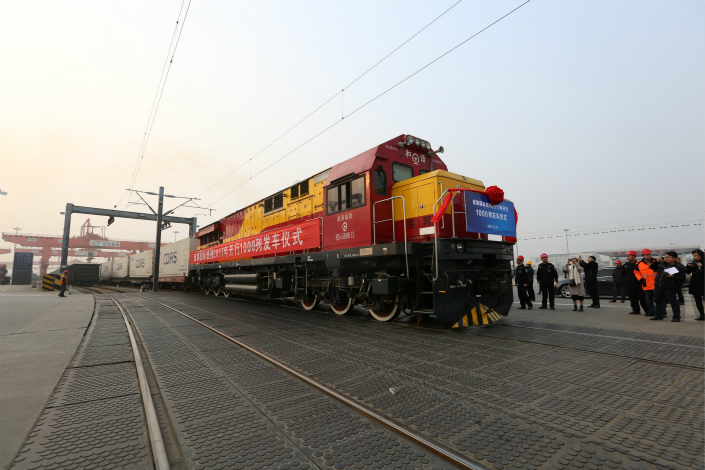‘Belt and Road’ Companies May Get Help With Yuan-Denominated Hong Kong IPOs

The Chinese government is considering helping “top” companies involved in the “Belt and Road” initiative conduct yuan-denominated initial public offerings (IPOs) in Hong Kong, the state-owned China Daily newspaper reported Wednesday.
Zhang Xiaoqiang, vice chairman of the China Center for International Economic Exchanges, was quoted by China Daily as saying that the move is aimed at expanding Hong Kong’s participation in the Belt and Road through “facilitating the initiative on the investment front and further promoting internationalization of the yuan.”
Additionally, the plan could boost Hong Kong’s role in offshore yuan trading, the report said. Zhang did not offer a timeline.
Launched by President Xi Jinping in 2013 as a way to build China’s global business ties, the Belt and Road development strategy has resulted in infrastructure, trade, and investment deals with dozens of countries and foreign organizations.
Hong Kong, a special administrative region of China, has recently become more formally involved in the initiative. In January 2017, the region’s then-chief executive, C.Y. Leung, expanded its Belt and Road office. In December, Leung’s successor, current Chief Executive Carrie Lam, signed an agreement with China’s National Development and Reform Commission that gives Hong Kong a formal role in the Belt and Road.
The agreement called for Hong Kong to use its status as a financial hub to raise funds for the initiative.
If China follows through with the plan described by Zhang, Hong Kong could see its first major yuan-denominated IPOs since 2011, when Hui Xian Real Estate Investment Trust, controlled by Hong Kong tycoon Li Ka-shing, raised 10.48 billion yuan (about $1.6 billion at the time) in the first such offering ever.
China has for years been promoting the yuan’s international use. The country launched two Stock Connect programs — linking the Hong Kong Stock Exchange with those in Shanghai and Shenzhen — in 2014 and 2016 respectively. In October 2016, the International Monetary Fund added the currency to its Special Drawing Rights basket, the organization’s supplementary reserves.
Guangdong province, Hong Kong, and Macau have also been discussing a possible program to loosen restrictions on the flow of yuan between the mainland and the two special administrative regions.
Contact reporter Teng Jing Xuan (jingxuanteng@caixin.com)

- 1Cover Story: China Carves Out a Narrow Path for Offshore Asset Tokenization
- 2Drownings Shake Chinese Enthusiasm for Travel to Russia
- 3Over Half of China’s Provinces Cut Revenue Targets
- 4Li Ka-Shing’s Port Empire Hit by Forced Takeover Amid Panama Legal Dispute
- 5In Depth: China’s Mutual Fund Industry Faces Overhaul After a Banner 2025
- 1Power To The People: Pintec Serves A Booming Consumer Class
- 2Largest hotel group in Europe accepts UnionPay
- 3UnionPay mobile QuickPass debuts in Hong Kong
- 4UnionPay International launches premium catering privilege U Dining Collection
- 5UnionPay International’s U Plan has covered over 1600 stores overseas






